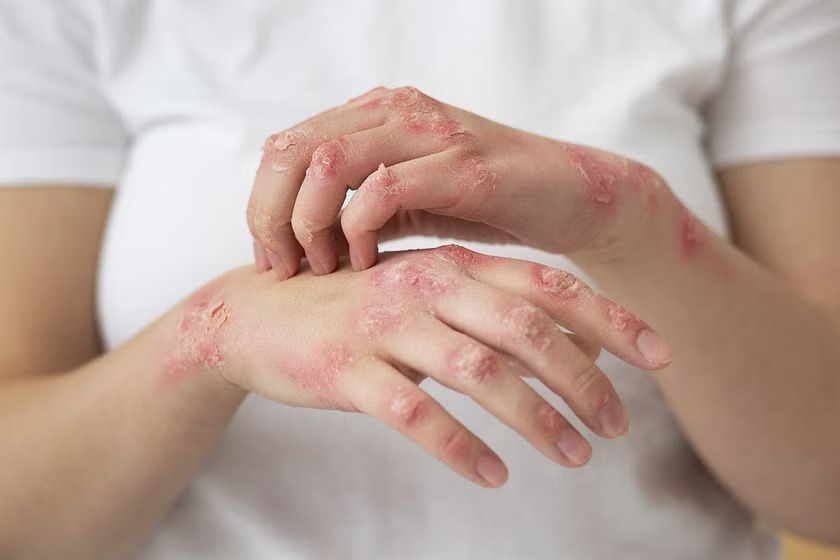St Vincent and the Grenadines concerned by cases of Leprosy in neighboring islands
Saint Lucia and Barbados, which are in close proximity to St Vincent and the Grenadines, have recorded confirmed cases of leprosy for the first time in many years, which has alarmed the region as a collective.

The Health Ministry of St Vincent and the Grenadines has expressed its concerns regarding the rise of leprosy in the neighbouring island nations.
The authorities are making the preemptive decision to begin monitoring its progression in the region, as well as within St Vincent and the Grenadines itself.Saint Lucia and Barbados, which are in close proximity to St Vincent and the Grenadines, have recorded confirmed cases of leprosy for the first time in many years, which has alarmed the region as a collective.
Leprosy, or Hansen’s disease is a chronic bacterial infection known to be caused by the pathogen Mycobacterium leprae.The disease, if left unchecked can have a debilitating effect on a patient’s skin, peripheral nervous system, mucosal tissues, eyes and upper respiratory tract.
The disease presents with severe skin lesions and nerve damage which can often lead to disabilities. It can be cured over a span of 6-12 months by the use of multi drug treatments.The disease can be spread through prolonged contact with an infected individual or when an infected individual coughs or sneezes leading to a healthy individual inhaling the droplets.
Saint Lucia has seen a 120% increase in leprosy cases between 2020 and 2023, having confirmed 11 new cases recently.
St Vincent and the Grenadines on the other hand, has not recorded a single case of leprosy since 2019 and is looking to ensure that the current status quo is maintained at all costs.
This is why the Health Ministry of St Vincent and the Grenadines is taking precautionary measures and ramping up surveillance to keep the disease outside its borders.The Ministry issued an official statement on the matter in which its representatives said the following, “While Leprosy was once feared to be a highly contagious and devastating disease, the Ministry would like to reassure the public that leprosy does not spread easily and treatment is very effective. However, if left untreated, the nerve damage associated with leprosy can result in deformities of hands and feet, paralysis, and blindness.”
“St Vincent and the Grenadines has not seen any new cases of leprosy for the period 2022- January 15th. 2024," said Health Ministry.The Ministry has stressed the need for early treatment to mitigate the effects of the disease. It has also issued an advisory to make sure that citizens take the necessary precautionary measures to keep themselves safe from the disease.
Citizens have been advised to cover their mouth and nose when coughing and wash their hands frequently. These are basic measures that can be taken by any and all, yet can have a profound effect in terms of controlling the spread of the disease with in a community or a nation.
The Ministry of Health has also stated the following, “With early diagnosis and treatment, the disease can be cured. It’s important to note that people with Leprosy disease can continue to work and live an active life during and after treatment.”
The Ministry recognizes the stigma attached with the disease which has been a constant companion to humanity for most of recorded history. In fact, it has features in stories, myths and mythology dating back to biblical times.
With the advent and the advancement of modern medicine though, leprosy has now become a disease that can be cured if treated appropriately, without affecting the quality of life of a patient. Thus, it is important for citizens to be fully aware of what the disease is capable of and the options available to them in the fight against it.
That is precisely what the Health Ministry is aiming to do, so as to ensure that citizens can make informed decisions and use the medical facilities at their disposal to keep themselves safe and healthy.
Author Profile
Monika Walker is a senior journalist specializing in regional and international politics, offering in-depth analysis on governance, diplomacy, and key global developments. With a degree in International Journalism, she is dedicated to amplifying underrepresented voices through factual reporting. She also covers world news across every genre, providing readers with balanced and timely insights that connect the Caribbean to global conversations.
Latest
- Guyana: 13-year-old fighting for life after bus assault, 2 t...
-
Saint Lucia records highest January ever with 37,691 stay-ov... -
Gabriel Harrigin deported from Guyana, faces rape, kidnappin... -
Trinidad: Teenager found hanging from tree in Williamsville,... -
Barbados to host CPL 2026 final for the first time in tourna...









